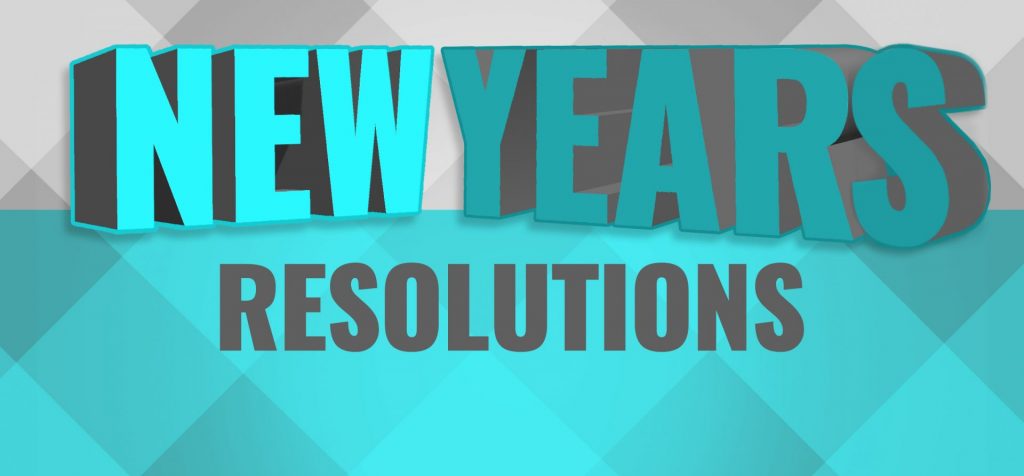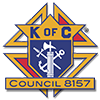

Happy New Year! I hope your holidays were GREAT. It’s time for that New Year’s Resolution. As your health guy, I want to encourage everyone to be optimistic and resolve to have a healthier 2019. So, like one of my favorite people, Will Rogers: “All I know is what I read in the newspapers.” I’ve reviewed some literature on making and achieving New Year’s resolutions.
A lot of resolutions fail because they’re not the right resolutions. A resolution may be wrong for one of three main reasons:
- It’s a resolution created based on what someone else (or society) is telling you to change.
- It’s too vague.
- You don’t have a realistic plan for achieving your resolution.
First, your resolution should be SMART. That’s an acronym coined in the journal Management Review in 1981 for specific, measurable, achievable, relevant and time-bound. It works for management, and it can also work in setting your resolutions.
- Specific. Your resolution should be absolutely clear. Not “I want to lose weight”, but “ I want to lose five pounds in the next two month.”
- Measurable. This may seem obvious if your goal is a fitness or weight loss related one, but it’s also important if you’re trying to cut back on something, too. Logging progress into a journal or making notes on your phone or in an app designed to help you track behaviors can reinforce the progress, no matter what your resolution may be.
- Achievable. This doesn’t mean that you can’t have big stretch goals. But trying to take too big a step too fast can leave you frustrated.
- Relevant. Is this a goal that really matters to you, and are you making it for the right reasons? “If you do it out of a sense of self-hate or remorse or a strong passion in that moment, it doesn’t usually last long.
- Time-bound. Like “achievable,” the timeline toward reaching your goal should be realistic, too. That means giving yourself enough time to do it with lots of smaller intermediate goals set up along the way. “Focus on these small wins so you can make gradual progress
You are much more likely to succeed if you’ve made a formal New Year’s resolution. However over a third fail before the end of January and over half will quit by July. They’ll fail because they’ll eventually run out of willpower. Which, I was surprised to learn that social scientists no longer regard as simply a metaphor. They’ve recently reported that willpower is a real form of mental energy, powered by glucose in the bloodstream, which is used up as you exert self-control. The result is “ego depletion,” as this state of mental fatigue was named by Roy F. Baumeister, a social psychologist at Florida State University. He and many of his colleagues have concluded that the way to keep a New Year’s resolution is to anticipate the limits of your willpower. The study showed that the people with the best self-control, paradoxically, are the ones who use their willpower less often. Instead of fending off one urge after another, these people set up their lives to minimize temptations.
Odysseus’ classic strategy, having himself tied to the mast, still works. Besides the simple things you do yourself — plan meals in advance, keep junk food out of the kitchen, you can further bind yourself against modern sirens by emailing your goal to friends or posting it on Facebook.
John C. Norcross and other psychologists at the University of Scranton reported in 2002 after having tracked people for six months after New Year’s. By the end of January, 36 percent of them had broken their resolutions. After that, the failures happened more slowly. Half were still keeping their resolutions in March, and by July the success rate was still 44 percent — less than half, admittedly, but still impressive compared with a control group of people who had the same goals (like losing weight) but didn’t make formal resolutions. Only 4 percent of the control group made progress. “Contrary to widespread public opinion, a considerable proportion of New Year resolvers do succeed,” Dr. Norcross said. “You are 10 times more likely to change by making a New Year’s resolution compared to non-resolvers with the identical goals and comparable motivation to change.”
Keep Track Nutritionists used to advise people not to weigh themselves more than once a week — supposedly so as not to get discouraged by fluctuations — but recent research has shown that daily weigh-ins work better. Self-monitoring is vital to any kind of resolution, and new tools will do the grunt work for you. Gizmos like the BodyMedia Fit armband and the FitBit clip can estimate how many calories you’ve burned by keeping track of your movements all day long.
Don’t overreact to a lapse. One reason dieters fail is a phenomenon formally known as “counterregulatory eating” — and informally as the “what the hell effect.” Once they lapse, they figure the day’s diet is blown anyway, so they go on to finish the whole carton of ice cream, thereby doing far more damage than the original lapse.
Tomorrow is another taste One of the cheeriest new findings from diet research comes from an experiment in which people had to resist a bowl of M&M’s. The ones who told themselves they could have the candy later had a much easier time than the ones who swore off M&M’s permanently. So when the dessert cart arrives, promise yourself that you’ll sample each of the treats, but just not tonight.
Reward often If you use willpower only to deny yourself pleasures, it becomes a grim, thankless form of defense. But when you use it to gain something, you can wring pleasure out of the dreariest tasks. Young people who seem hopelessly undisciplined in school or on the job will concentrate for hour after hour on video games because there’s a steady series of prizes. That’s the feeling to aim for in the real world. If you quit smoking, earmark some of the savings for expensive meals. If your waistline shrinks, splurge on new clothes. There are gadgets and apps that award points or trophies. Even the tiniest and silliest rewards can make a difference. If you want your willpower to last all year, every little bit helps. I heard on the radio today that it takes about 66 days to form a new habit. Let’s go for it. I resolve to lose 4” of waistline by April.


